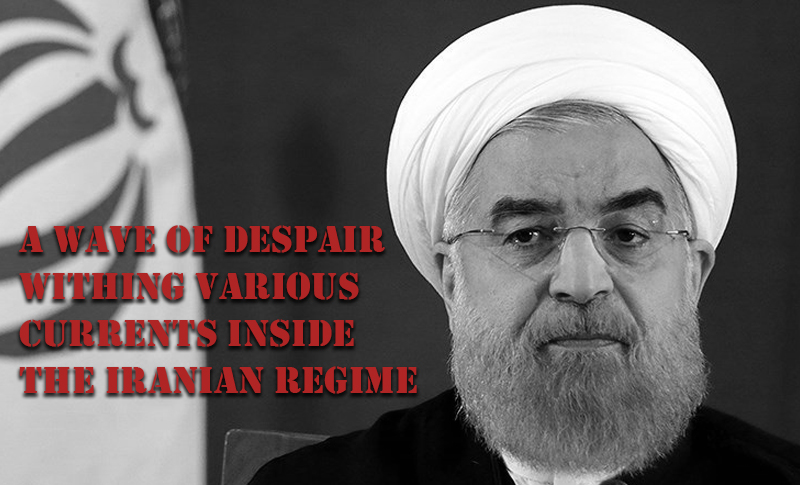

Analysis about the upcoming legislative elections of the Iranian regime
By Navid Felker
The Iranian regime will hold a so-called parliamentary elections on February 21, 2019. This election is very necessary for the regime because after the November 2019 nationwide protests, it needs to rebuild its image internationally.
Despite that, there is a wave of despair withing various currents inside the regime. Many officials complain of low political cooperation.
Emad-Aldin Baghi, former so-called reformist has recently said “with regards to despair and dissatisfaction in the society, we can not count on large participation in the upcoming elections. Unfortunately, polls show low popularity of the eleventh parliamentary elections.”
Mehdi Ayiti former member of regime’s parliament said recently in an interview that the prognosis is that not only the public participation is low but also chances of “reformists”; now people are tired from the performance of both “reformists” and “hardliners” currents. A third party must bring new discussions about how to handle economical and subsistence problems of the people.
However, all currents within the regime try to hide the full dimensions of the effects of November 2019 nationwide protests on upcoming elections. They try to keep the issue silent.
This is the reason why the so-called reformists have no clear sight for the upcoming elections.
Sadegh Zibakalam, a university lecturer close to the reformists, made it clear that “a real ‘reformist’ will not find his way to the parliament. The system will not let reformists to come to parliament. So the reformists must find a way to decide what to do with the upcoming elections.”
Remarks of Zibakalam were reference to extensive disqualifications imposed by the Guardian Council.
Abbas Abdi a journalist affiliated to this current who was also one the hostage takers of the U.S. embassy in 1979 has recently said, “The issue of elections is over for the reformists. In my view the real problem for the reformists are the people that have no trust and positive view on the reformist current and this includes a large number of people specially in Tehran.”
November 2019 Iran Protests Death toll
Mahmoud Sadeghi, member of regime’s parliament, described upcoming elections as follows:
“The situation is very different in the upcoming parliamentary elections in comparison to the presidential elections. According to polls, what is clear until now is that people’s participation in big cities will be very low. The reformists aimed to participate actively but the recent events in the country has upset the people and this became a factor for the registration of reformists in the elections. The parliament is very weak, and they will not participate.”
What Sadeghi means with “recent events in the country” is the November nationwide protests, an uprising which its dimensions of the crackdown is unclear. There is no exact number of those killed and injured. Reuters confirmed in a special report on December 23, 2019, about the deadly crackdown on November nationwide protests in Iran the death toll of 1,500 that was announced by the People’s Mojahedin Organization of Iran (PMOI) on December 15, 2019. The report shows that Khamenei ordered suppressive institutions for eradication of the protests.
The reports from inside the country show that the public opinion has no trust in the system. Playing with “reformists” card to warm up the so-called elections has no more results for the regime at the current state.
This is the reason why we can clearly say that the regime has already lost the “legislative elections”.







